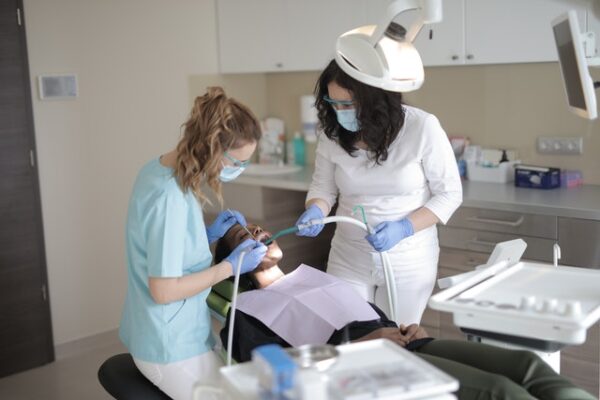How to Resign From A Dental Office
By: Jennifer Murphy, DDS, FAGD You’ve been working at an office for a while now and things are just not working out the way you imagined or were promised. What do you do now? First, let’s acknowledge this is never an easy position to be in. There is also no right or wrong answer, but…
Read More4 Promises of Leadership Development That Will Transform Your Dental Career
By: Dr. Edwin “Mac” McDonald The development of leadership competencies is about developing yourself. As you look outward with the desire to influence and inspire, consider what you would gain from looking inward instead. Becoming a great leader is about your own capacity for change, as hard as change can be. In the dental practice,…
Read MoreHow can dental students save for their own practice?
By: Ava Guzman After graduation, dentistry students might immediately want to start working in order to get a return on their educational investment and earn a living. However, between student loans and the money needed to open up a clinic, the costs are steep. Saving Money for Your Dental Practice The American Dental Association (ADA)…
Read MoreFall Forward
By: Mohammed Hammoud There is only one way to know if your purpose aligns with your career, and that is to pursue it. I often pondered beforehand if I was making the right decision in pursuing dentistry. I shadowed hundreds of hours and volunteered my time to be positive I was making the right…
Read MoreHow to calm patients with dental anxiety
By: Jamie Finch If a patient is feeling too anxious before a procedure, it can make the dentist’s job much harder. While it’s important that you calm patients with dental anxiety as much as possible, doing so can be easier said than done. However, there are effective methods of soothing patients that you can easily…
Read MoreAcquiring a Dental Practice: Tax Guide
By: Bruce Bryen Now that the dental school graduate has worked as an associate and feels that an understanding of the workings of a practice is known, he or she may be ready to acquire a dental practice. The knowledge of the clinical skills will be known only to the degree they were acquired while working…
Read MoreSlowing employee turnover in the dental industry
By: Katie Klaes The hospitality industry was known for high employee turnover even before the pandemic. Dentistry and several other industries are now facing the same challenges, so I wanted to investigate what they are doing to attract and retain employees. Surprisingly enough, their recommendations can also be directly applied to your dental office. 5…
Read MoreRemember, you’re more than just a dental student!
By: Savanah Craig When you spend 9+ hours a day at your dental school and are surrounded by people who do the same, it’s easy to let being a dental student consume your whole life. It can feel like your worth comes from your grades when all of your free time is spent studying or…
Read MorePreparing for Dental School Graduation
By: Savanah Craig If you’re anything like me, getting into dental school was the goal. I never really thought about what would happen after dental school graduation. From a young age, I knew that I wanted to pursue a career in Dentistry, so my path was dictated by what Ithought would allow me to get…
Read MorePediatric Dentistry Start-Up: Cuivre Creek
By: Casey Goetz I knew for years that my ultimate professional goal was to start my own pediatric dental office. I wanted to have that autonomy and be in control of my career so that I could deliver my dentistry in a way that I thought was superior. I briefly associated with another office for…
Read More









